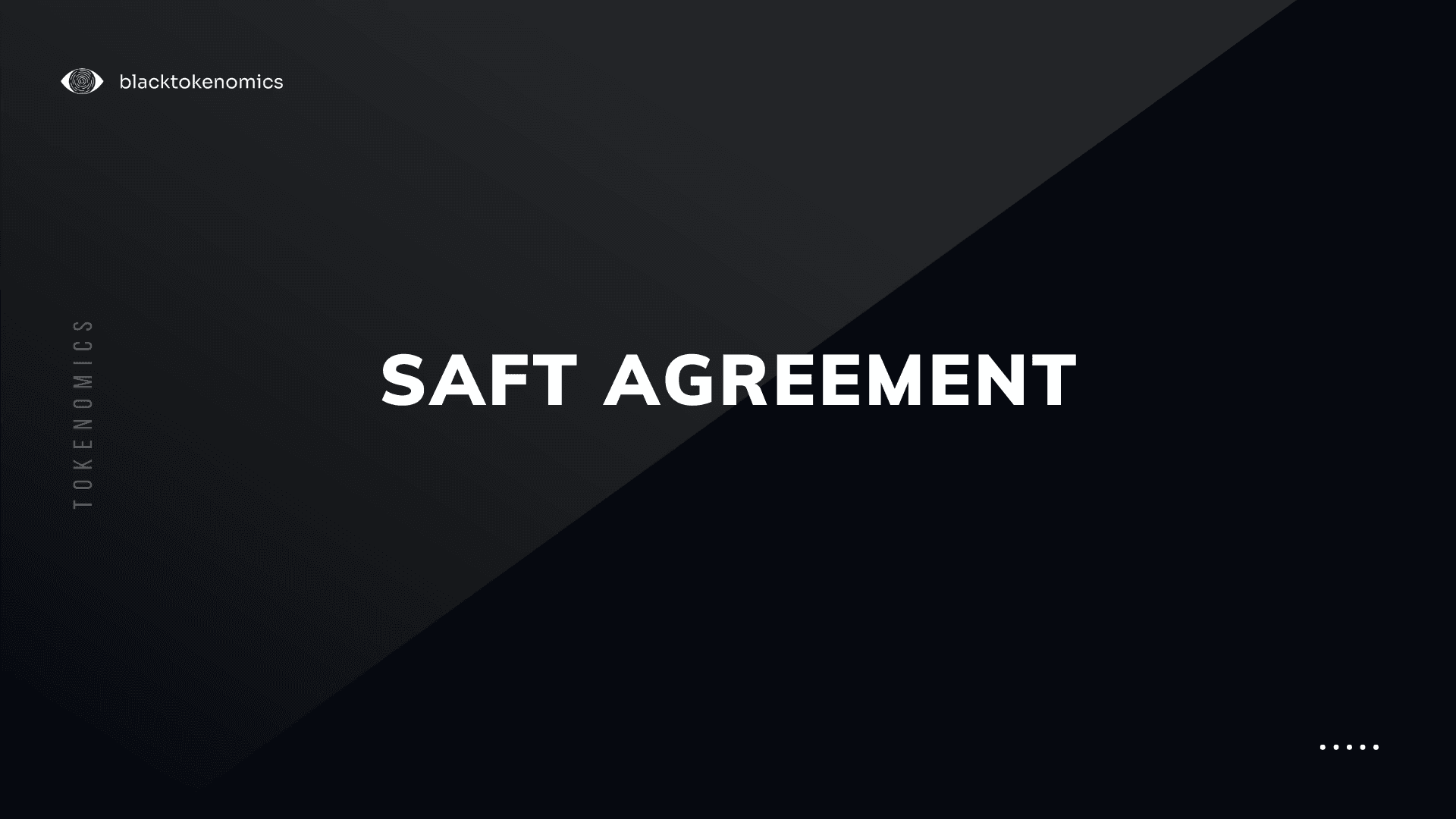
Sven
The world of cryptocurrency can be exciting and full of potential, but it also comes with complexities and challenges. One of these challenges is the legal framework surrounding investments in cryptocurrency projects.
Enter the SAFT Agreement, a unique investment vehicle designed to address these concerns and provide a compliant way for accredited investors to participate in this rapidly growing industry. But, what is a SAFT Agreement?
Throughout this blog post, we will explore the intricacies of what is a SAFT Agreement, discuss their key components, and compare them to other investment vehicles.
By the end, you’ll have a comprehensive understanding of how SAFTs function and why they are an essential part of the cryptocurrency ecosystem.
Key Takeaways
SAFT Agreements are investment contracts designed to facilitate secure funding for cryptocurrency projects, compliant with federal securities regulations.
They enable ventures to raise funds in a compliant manner while protecting investors and providing access to the product once created.
Benefits include discounted tokens and early access, but startups must navigate complex legal requirements such as accredited investor criteria and Howey Test compliance.
Understanding SAFT Agreements
A SAFT Agreement, or Simple Agreement for Future Tokens, is an investment contract designed for accredited investors to fund cryptocurrency projects in exchange for discounted future token offerings, providing legal compliance and protection.
Unlike traditional investment vehicles like initial public offerings, SAFTs are tailored specifically for the unique needs of cryptocurrency developers and investors.
SAFT Agreements primarily benefit startups by facilitating secure funding in line with federal securities regulations. This is valuable as it mitigates potential legal complications and provides protection for investors.
SAFTs are structured to comply with the Howey Test, a regulatory requirement for determining whether an investment is considered a security, as overseen by the Securities and Exchange Commission.
Purpose of SAFTs
The primary goal of SAFTs is to help cryptocurrency ventures raise funds in a compliant manner, providing financial security for both investors and startups.
Startups can leverage SAFT Agreements to acquire necessary capital, comply with securities regulations, and enhance token value, ultimately benefiting investors.
When an investor purchases a SAFT, they are provided with documentation that grants them access to the cryptocurrency or other product once it is created.
This gives investors a higher level of protection compared to initial coin offerings (ICOs), which may not offer the same level of investor security as an initial public offering.
SAFTs and the Howey Test
To comply with securities regulations, SAFTs are crafted in line with the Howey Test, a regulatory standard used to differentiate a security from an investment.
If a cryptocurrency meets the criteria of the Howey Test, it is considered a security.
SAFTs are specifically tailored for accredited investors, meaning they take into account investor class distinctions and ensure that only qualified investors, including small private investors, can participate.
This is a crucial aspect of maintaining legal compliance and protecting both startups and investors from potential legal issues.
Key Components of a SAFT Agreement
The essential elements of a SAFT Agreement include token distribution, discount rates, and valuation caps, which serve to safeguard both investors and startups.
These components help provide stability and transparency to the investment process while ensuring that the interests of all parties are protected.
well-designed token economy is critical to balancing these elements effectively—learn more with this guide on how to design a robust token model.
Grasping the key components of a SAFT Agreement empowers investors to make informed participation decisions about cryptocurrency projects, and enables startups to fulfill legal requirements while safeguarding against potential risks.
Token Distribution
Token distribution is an important aspect of SAFT Agreements, as it ensures a balanced ecosystem for the cryptocurrency project.
This typically involves allocating tokens to the community, treasury, and early investors.
In a SAFT agreement, tokens are distributed to investors after they have provided their investment funds.
The investor must then provide their digital wallet address to the company, which will subsequently deliver the tokens to that address.
Discount Rates and Valuation Caps
Discount rates and valuation caps play a crucial role in SAFT Agreements, as they incentivize early investors and help establish the future value of tokens.
The discount rate refers to the percentage discount that SAFT investors receive when purchasing tokens in the future.
For example, a discount rate of 40% would indicate that the SAFT investor can acquire the tokens at 60% of the price paid by future investors.
Valuation caps serve as a safeguard for investors, ensuring they cannot receive more than a predetermined maximum token value from the sale of the tokens.
This helps protect investors from potential losses should the tokens not reach their expected value.
Comparing SAFTs to Other Investment Vehicles
While SAFT Agreements share similarities with other investment vehicles, they possess unique features and benefits that set them apart.
One of the key differences between SAFTs and other investment vehicles is their specific focus on token sales, as well as their adaptability to the issuer’s particular requirements.
This section draws a comparison between SAFTs and other investment vehicles like SAFE and ICO, underlining their similarities and differences, and elucidating the significance of SAFTs in the cryptocurrency realm.
SAFT vs. SAFE
Both SAFT and SAFE agreements serve as investment vehicles for startups, but they cater to different types of investments.
While a SAFT Agreement offers future tokens, a SAFE agreement grants the right to receive future equity.
This distinction is important, as it means that SAFTs are more suitable for cryptocurrency projects, while SAFE agreements are better suited for traditional startups seeking future equity investments.
Comprehending the variances between these two investment vehicles facilitates informed decision-making and the selection of a suitable investment strategy.
SAFT vs. ICO
SAFT Agreements and ICOs both serve as fundraising mechanisms in the cryptocurrency industry, but they cater to different types of investors and have varying levels of regulatory compliance.
SAFTs are tailored to accredited investors and adhere to securities regulations, whereas ICOs are open to the general public and may face regulatory challenges.
This distinction is important for both investors and startups to consider when selecting an investment vehicle in the cryptocurrency space.
SAFTs provide a more secure and compliant option for accredited investors, while ICOs offer wider accessibility but may come with increased regulatory risks.
Pros and Cons of SAFT Agreements
SAFT Agreements have both advantages and disadvantages for investors and startups alike. Some of the benefits include discounted tokens, early access to projects, and potential high returns on investment.
On the other hand, challenges such as navigating a complex regulatory environment and managing token distribution can make SAFTs a more difficult investment option.
This section delves into the advantages and disadvantages of SAFT Agreements in detail, illuminating their implications for both investors and startups.
Benefits for Investors
Investors stand to benefit from SAFT Agreements in several ways. These include discounted tokens, which provide a more attractive investment opportunity compared to purchasing tokens at full price.
Additionally, early access to projects allows investors to get in on the ground floor of exciting new ventures, potentially leading to high returns on investment.
Moreover, SAFTs offer investors a level of protection and compliance not always present in other investment vehicles, such as ICOs.
This added security can be especially appealing to accredited investors looking to invest in the cryptocurrency space.
Challenges for Startups
While SAFT Agreements can be beneficial for startups in terms of raising capital, they also come with their share of challenges.
One major challenge is navigating the complex regulatory landscape surrounding cryptocurrency investments.
Ensuring compliance with securities laws and other legal requirements can be a daunting task for startups entering the cryptocurrency space.
Another challenge for startups using SAFTs is managing token distribution.
Coordinating the allocation of tokens to investors, the community, and the treasury can be a complex process, requiring careful planning and execution to ensure a balanced ecosystem for the cryptocurrency project.
Legal Considerations for SAFTs
Legal aspects involved should be duly considered when contemplating a SAFT Agreement.
Ensuring compliance with accredited investor requirements and regulatory guidelines is essential to guarantee a successful and legally sound investment.
This section delves into the legal considerations for SAFTs, investigating the accredited investor criteria and the significance of regulatory compliance in cryptocurrency investments.
Accredited Investor Requirements
To participate in a SAFT Agreement, investors must meet specific criteria, such as income and net worth, to handle the associated risks.
Accredited investors are eligible to trade in certain restricted and heavily regulated securities, provided they meet certain criteria, including regulatory requirements and income level.
Understanding the requirements for accredited investors is crucial for both investors and startups, as it ensures that all parties involved in a SAFT Agreement are legally qualified and able to manage the risks associated with the investment.
Regulatory Compliance
Startups must ensure regulatory compliance with securities laws and the Howey Test when implementing SAFT agreements to avoid legal issues.
This includes verifying that the SAFT agreement meets the requirements of the Howey Test and that the tokens being sold are not considered securities under applicable laws.
Complying with federal laws and regulations enables startups to shield themselves and their investors from possible legal pitfalls, promoting a secure and successful investment experience for all involved parties.
Summary
Throughout this blog post, we have explored the ins and outs of SAFT Agreements, from their purpose and key components to their advantages and challenges.
We have also compared SAFTs to other investment vehicles such as SAFE and ICO, and discussed the legal considerations and requirements associated with this unique investment vehicle.
As the world of cryptocurrency continues to grow and evolve, SAFT Agreements will undoubtedly play an increasingly important role in shaping the future of this dynamic industry.
By understanding the intricacies of SAFTs, both investors and startups can confidently navigate the complex landscape of cryptocurrency investments and seize the opportunities that lie ahead.
Are you looking for advice regarding this topic, feel free to contact us through our tokenomics consulting page.
Sven
Sven is a digital entrepreneur with over 8 years of experience in SEO. He has helped Web3 businesses optimise their online presence online. He has a deep understanding of the Web3 space and ensures to vet all the projects BlackTokenomics works with.

